Our approach to forming better neighbourhoods explores 3 different perspectives: zero-emission, plus-energy and circular economy. These 3 perspectives are at the core of the projects ZEN, syn.ikia, and ARV.
While ZEN, syn.ikia, and ARV differ in perspective, they share a common goal: to form better neighbourhoods by developing solutions for attractive, robust and affordable homes and buildings with low carbon footprint. Focus is on boundaries beyond building level, extending to smaller communities and neighbourhood scale. They incorporate the integration of people, buildings, energy systems and circular solutions, using an interdisciplinary approach. Demonstration projects are used to develop solutions around Norway and Europe.
The ZEN Research Centre aims to develop sustainable neighbourhoods with zero greenhouse gas emissions (perspective 1). This involves 9 unique demonstration areas in Norway. One of these is Ydalir in Elverum, consisting of a school, a kindergarten and residential buildings. From the outset, Ydalir has been planned with strong community engagement. The participation processes have allowed for proposals on shared living solutions which contribute to the sustainable lifestyle in Ydalir. Co-creation and user involvement in a Living Lab approach have been central to the success.
The EU-project syn.ikia aims to develop sustainable plus energy neighbourhoods in different climates, contexts and markets in Europe. The sustainable energy perspective (2) is reflected in the demonstration project Gneis in Austria, one of 4 real-life projects that are part of syn.ikia. Gneis will be energy positive and provide 3 shared services: heating system, electricity and mobility. All 3 services will be planned together to ensure an integrated design.
Perspective 3 is illustrated by the Voldsløkka regeneration area, one of 6 demonstration projects in the Green Deal project ARV. ARV will provide guidelines and set a political framework for climate positive and circular solutions in the construction industry. The school building used to be a cement factory and was one of the largest of its kind in Europe. This former industrial area is being transformed into Oslo municipality’s first plus-energy neighbourhood using circular design principles.
The demonstration projects serve the purpose of learning from different neighbourhoods, with the intention of upscaling experiences for more sustainable climate friendly communities.
Important aspects of our projects:
- An interdisciplinary and cross-sectoral approach, including the buildings, energy and transport/mobility sectors.
- Climate neutral, highly energy efficient neighbourhoods with a surplus of energy from renewable sources.
- Neighbourhoods as flexibility providers that enable more renewable energy sources to enter the electric and thermal grids and allow for flexible management of energy demand and generation.
- Sustainable transport patterns and smart mobility systems.
- Economic sustainability, by minimizing total life cycle and life cycle system costs.
- Architectural and spatial design that improves attractiveness of housing and its market uptake.
- Engaged, empowered and conscious users.
- Application of circular solutions of reuse, recycling, and adaptability.
- Collaboration between academic, public and private partners, and end users for development, testing and validation of real-life concepts, tools and demonstration projects.
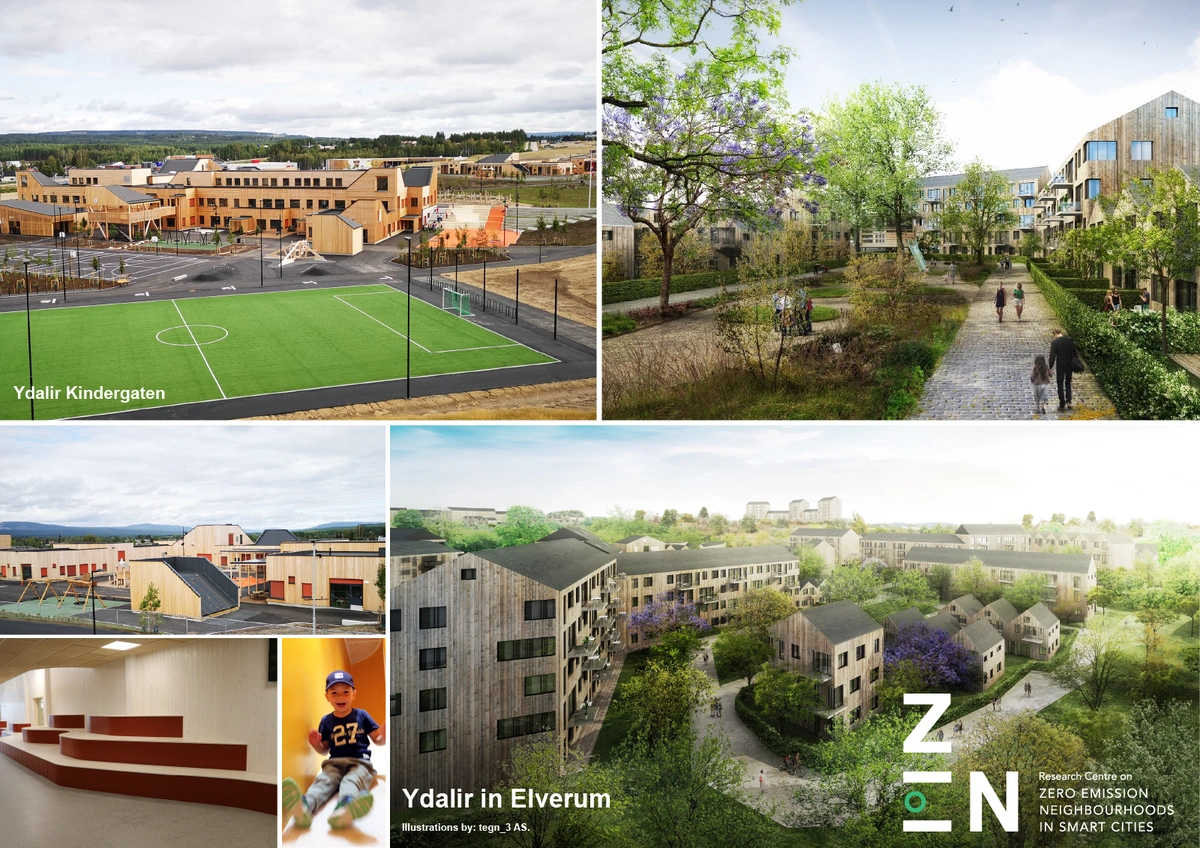
Ydalir in Elverum is a demonstration project in The ZEN Research Centre and Norway’s first zero-emission neighbourhood. The area consists of a school, a kindergarden and residential buildings. Participation processes with developers, citizens and others have provided proposals and solutions for how sharing solutions and a sustainable lifestyle in Ydalir can be realized. Methods like co-creation and user involvement in a Living Lab approach have been central.
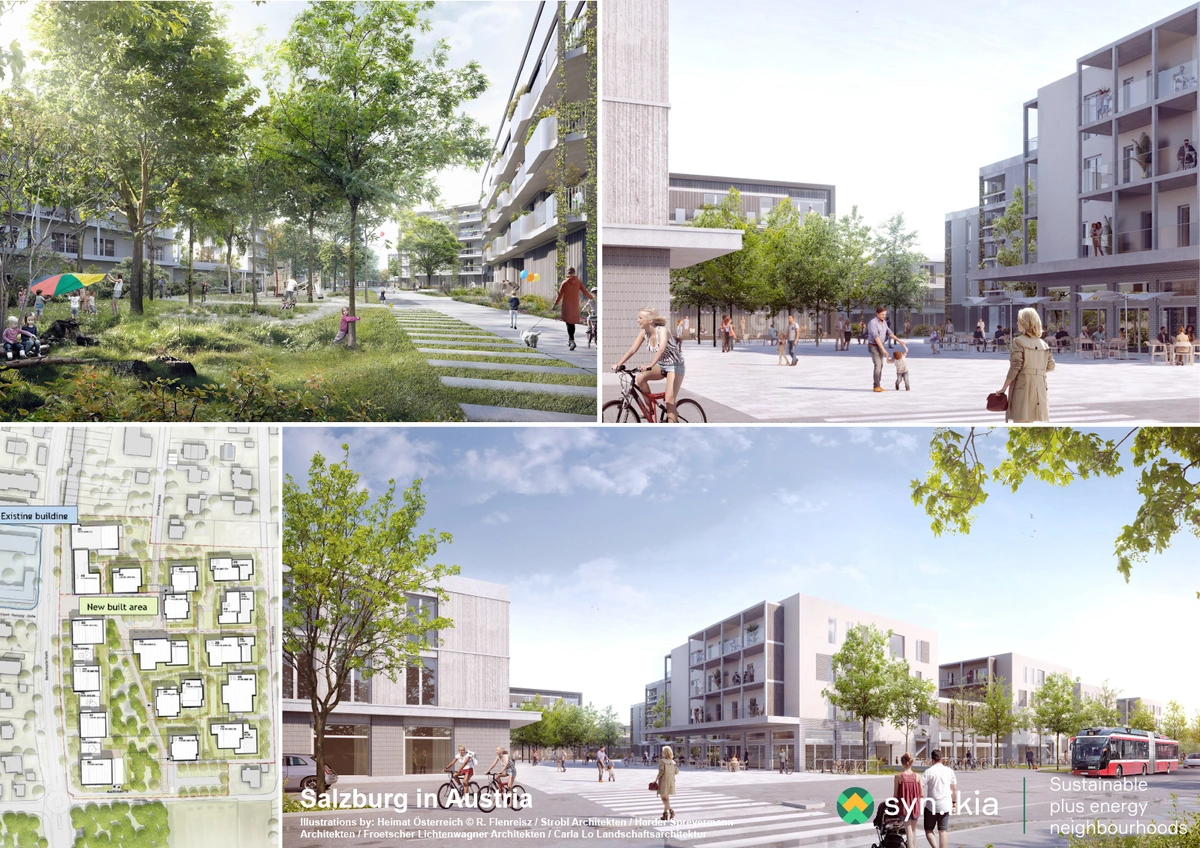
The Gneis area of 230 housing units is a new residential development located outside of Salzburg, Austria. The area is a demonstration project in the EU-project syn.ikia that aims to develop sustainable plus energy neighbourhoods in different climates, contexts and markets in Europe. Gneis will be energy positive and will provide three shared services: shared heating system, shared electricity, and shared mobility. All three services will be planned together to ensure an integrated design.
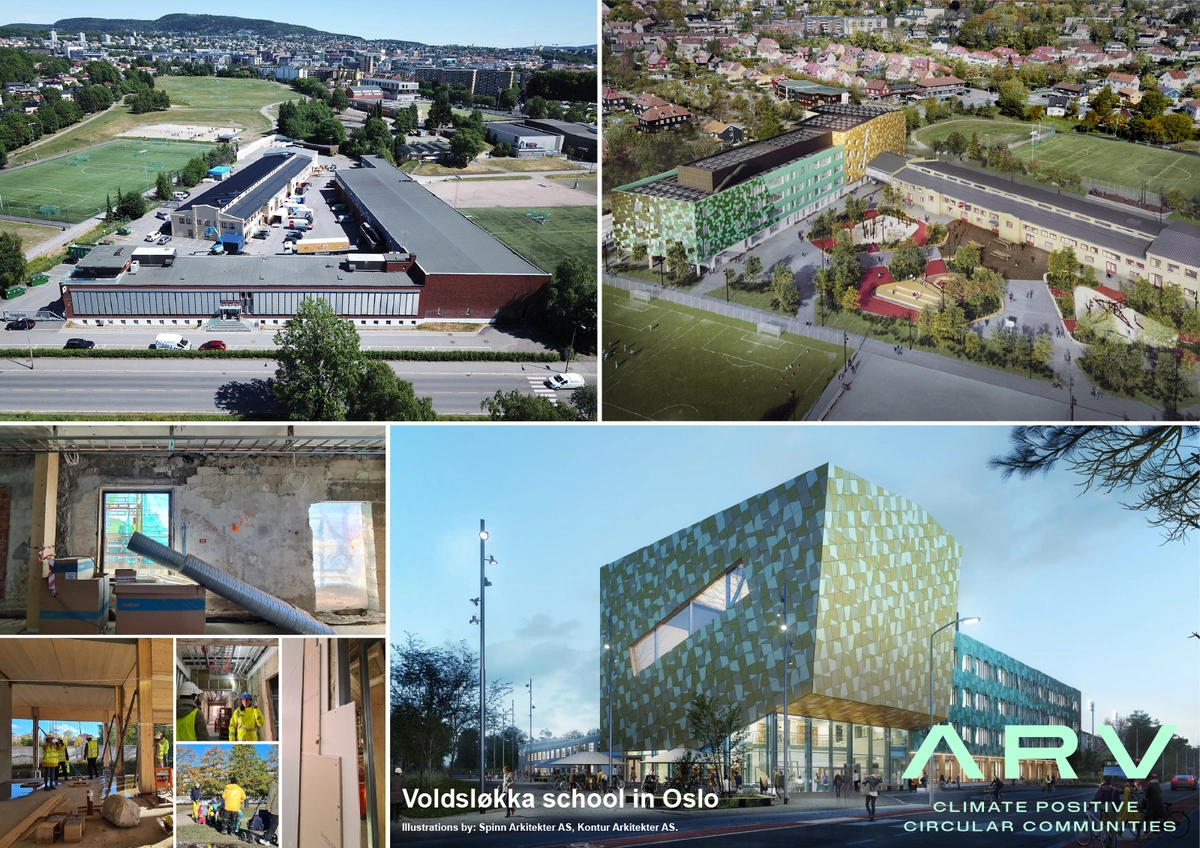
Voldsløkka school in Oslo is a demonstration project in ARV. It is a former industrial area containing one of the largest cement factories in Europe. It is now being transformed into Oslo municipality’s first plus-energy school and cultural area, using circular design principles, with new-build and renovation of heritage building. The innovations in ARV include: resource efficient renovation and district energy solutions, highlighting social and digital aspects to enhance citizens involvement.
The research and innovation projects and their associated neighbourhoods are developed in collaboration between universities, research institutes, municipalities, governmental agencies, public and private companies from both the building and energy industry. The ZEN Center, syn.ikia and ARV projects are hosted by the Faculty of Architecture and Design, Norwegian University of Science and Technology (NTNU). Including a multidisciplinary team, from academic, public and private organizations, allows for combining and utilization of the best knowledge, solutions and technologies from all actors/partners.
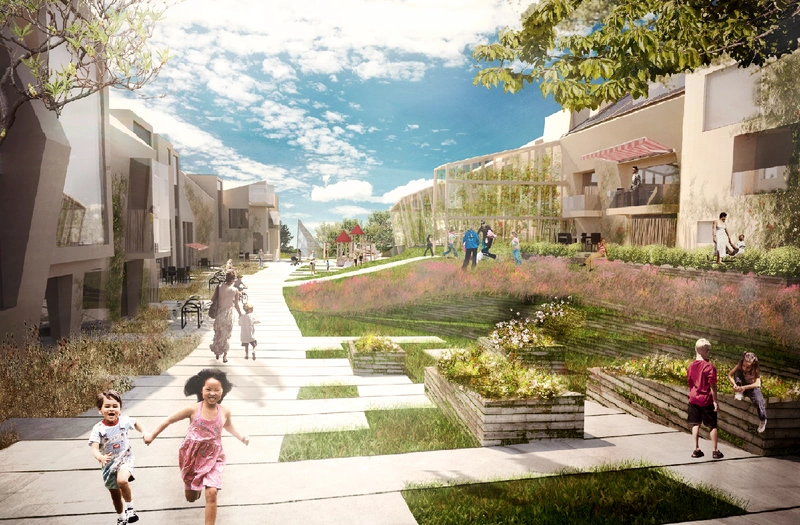
Zero Village Bergen. Illustration: Snøhetta. Project developed within The Research Centre on Zero Emission Buildings, ZEB.
The vision of The Research Centre on Zero Emission Buildings, ZEB is to eliminate greenhouse gas emissions caused by buildings. The national research centre places Norway in the forefront with respect to research, innovation and implementation within the field of energy efficient zero-emission buildings.
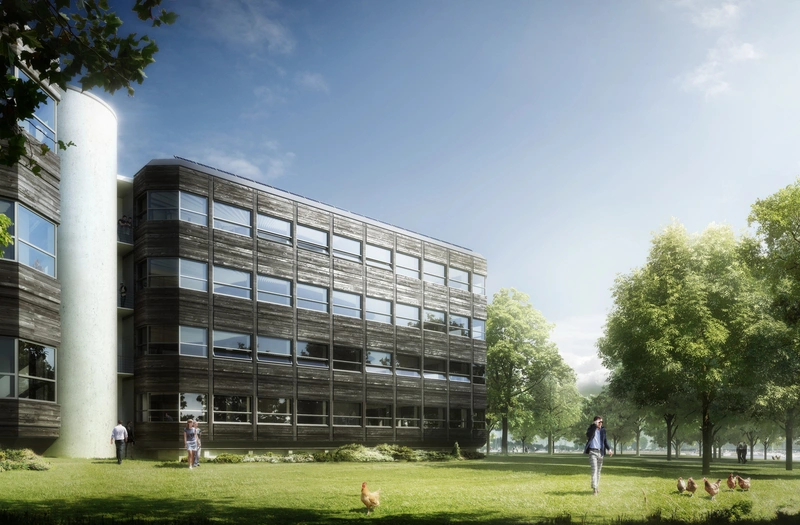
Powerhouse Kjørbo. Illustration Snøhetta/MIR
Project developed within The Research Centre on Zero Emission Buildings, ZEB.
http://zeb.no/
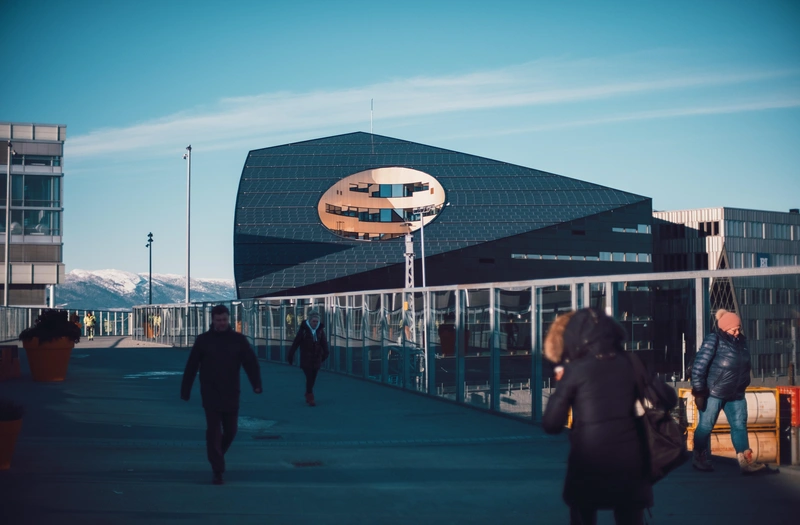
Powerhouse Brattørkaia. Foto: Thomas Klungland
Project developed within The Research Centre on Zero Emission Buildings, ZEB.
http://zeb.no/
